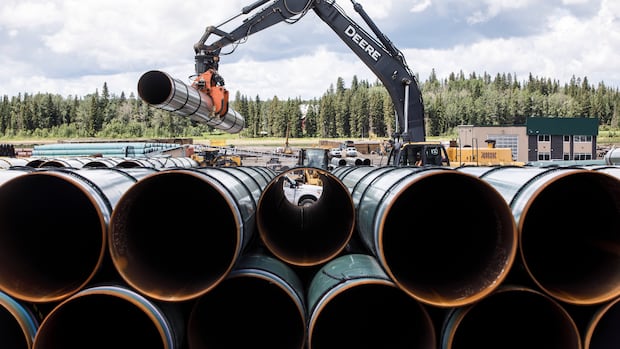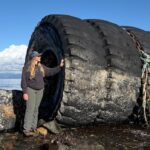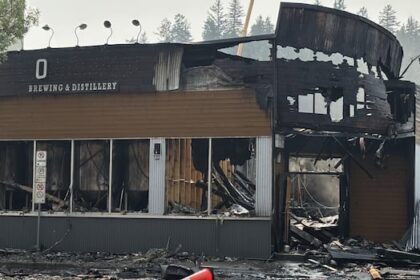British ColumbiaB.C. Assessment has proposed a revision to its gathering and transmission pipeline cost model, which could leave B.C. communities short hundreds of thousands of dollars in tax revenue. B.C. Assessment has proposed changes to how it determines the value of pipelines in the provinceHanna Petersen · CBC News · Posted: Oct 29, 2025 8:00 AM EDT | Last Updated: 6 hours agoListen to this articleEstimated 3 minutesPipe for the Trans Mountain pipeline is unloaded in Edson, Alta. on Tuesday June 18, 2019. (THE CANADIAN PRESS)Communities in B.C. with pipelines running through them are sounding the alarm about proposed changes to pipeline property valuations, which could leave them short hundreds of thousands of dollars in tax revenue. B.C. Assessment has proposed a revision to its gathering and transmission pipeline cost model, which it intends to implement in 2026.The updated model will reduce assessed pipeline values across the province, impacting communities where pipelines make up much of the commercial tax base. “We just know at this point, this is going to hurt,” said Clearwater Mayor Merlin Blackwell.The Trans Mountain pipeline runs through the community of about 2,400 located around 110 kilometres north of Kamloops, B.C. It was first built in 1953 and the Trans Mountain expansion project was completed in 2023. “The trickle-down to the average citizen is pretty dramatic,” said Blackwell. He said he anticipates an eight to 11 per cent loss of taxation from the pipeline utilities through the District of Clearwater, which equals to between $240,000 and $300,000 in lost tax revenue. First update since 1986Chris Whyte, B.C. Assessment’s manager of specialized costs, spoke to the Thompson-Nicola Regional District (TNRD) on Oct. 23 about the proposed changes. He said B.C. Assessment has been working with the pipeline industry since 2016 to review and redevelop the cost model used to evaluate pipelines. “They indicated the pipeline rates being applied in the regulation were not representative of the current costs,” he said. Whyte said the regulation was established in 1986 and based on costs and construction techniques for that era, and since that time there have been limited changes to the valuation model. “This is the first time since then that B.C. Assessment has completed a detailed review of costs.” Call for postponement The Thompson-Nicola Regional District says these proposed changes mean it will see a reduction of assessed value from 23 to 30 per cent. It said these changes may lead to potential increases in taxation to residential property owners by as much as 25 per cent before any other anticipated cost increases.In a letter addressed to Minister of Finance Brenda Bailey, the district requested that B.C. Assessment postpone the implementation of the model until its review of other large-scale utilities, including railways, is complete. “We feel that changes to Gathering and Transmission Pipelines should come into effect at the same time as other valuation changes, and that the status quo that B.C. Assessment has had in place since 1986 should remain in effect for at least one additional year,” writes TNRD chair Barbara Roden. The minister of finance is expected to review the regulated rates and rules in November and B.C. Assessment’s board of directors will then be asked to approve the changes in December. “I think basically every community and every regional district along any pipeline route in B.C. needs to clue in to this and start asking questions as quickly as they can,” said Blackwell. “Once it’s in effect, it’s going to be really hard to undo if there’s any possibility of undoing it.” ABOUT THE AUTHORHanna Petersen is a reporter for CBC News, working out of the Prince George, B.C., bureau. You can email her at hanna.petersen@cbc.ca.
B.C. communities could lose millions as pipeline companies set to pay lower property taxes











